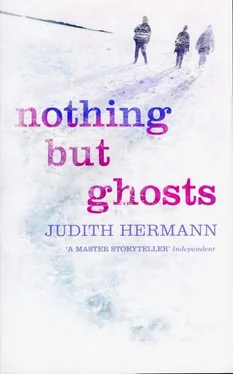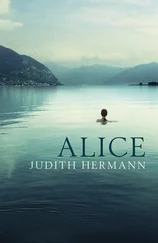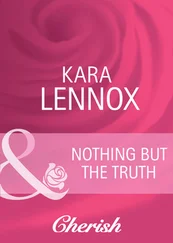She, Magnus and Sunna moved into this apartment four weeks ago. When Irene and Jonas arrived in November, a year before, they had just bought it. They had been looking for a long time and then finally found it, a small five-room apartment in the old harbour district of Reykjavik, with trees outside the windows and plasterwork on the ceiling. They were both very busy at work – and so they planned to renovate in January and move in February. They began the renovation in March, painted the walls, enlarged one of the doorways, put in new windows, and everything was actually finished, but then Magnus pulled up a floorboard, then a second and a third and decided to lay new parquet floors.
At that point Jonina opted out. She simply let go. She let him do the renovating by himself, and he took the entire apartment apart and couldn’t finish, he simply couldn’t finish, and in dismay Jonina concluded that concealed behind his reserve, his quiet and absent-minded manner, there was an absolute mania for perfection.
For months after that she no longer went to the apartment. She just couldn’t stand it. She couldn’t bear to see the awful mess – the destruction of things that had really been quite all right, and Magnus still thinking of new ways to make more changes. Summer came, and finally autumn, and in October he forced her to come and look at the result. They stood facing each other in the empty living room where the sunlight fell on the shining parquet floor and the walls gleamed. The plasterwork on the ceiling was accentuated by white paint, the doorways leading from one room to the next were wide and high. The windows had received a third coat of paint, and a huge silvery refrigerator hummed in the kitchen. Sunna’s room. Your room. The dining room. Our room. Magnus took off his glasses; he looked ill. He said, ‘I still have to lay tiles in the bath,’ and Jonina said, ‘Either I move in tomorrow or not at all, ever. Take my word for it. Tomorrow or not at all,’ and then he gave in.
In the kitchen, Sunna, wise beyond her years, says as if she were talking to herself, ‘There’s nothing to put away here,’ and she’s right. Magnus didn’t have any things, and Jonina had sold her own furniture. In all the rooms except Sunna’s there was only what was absolutely essential. Perhaps Magnus thought this was the way it ought to be. This was how an apartment for the three of them should look. It had to be empty so that it could then be filled with their new, shared life. Maybe, in his awkward and insecure way, he had visualized it like that. But so far nothing has been added.
Jonina had sensed their friends’ astonishment, their embarrassed politeness: ‘What a wonderful apartment, such a lovely location. But it’s rather bare, isn’t it? You ought to hang some pictures, some photos, anything.’
‘Could it be that Magnus worked on the renovation for such a long time because he wasn’t actually sure?’ Jonina’s sister had asked hesitantly. And Jonina had said, ‘Could be. But I’m not sure either, and we still have time, all the time in the world.’ It was reassuring. Her sister’s conjecture reassured her. It was good to know that Magnus was afraid of living with her, of the decision and its outcome; she is afraid too.
She shuts the cupboard door, goes to join Sunna in the kitchen and sits down at the table with her. The tap is dripping. Sunna is silent. Jonina gets up to turn it off. Then she sits down again. Sunna eating her cornflakes from a lemon-yellow bowl, sleepily, slowly. The cornflakes crackle in her small, closed mouth. She gazes intently at her mother. It’s not yet light outside.
In Olurfsbudir, Jonina and Sunna spend the afternoon – the last hours before it gets totally dark again at five o’clock – on the terrace. Jonina is sitting in a garden chair in the snow; Sunna is in the pool. Jonina has set the water temperature at 40°C; whenever the water gets too cold, more hot water flows in automatically. The pool is made of turquoise-coloured plastic. The water glitters; the snow around the edge of the pool has melted, but deep drifts of it cover the terrace. Sunna is sitting in the blue water, naked; her cheeks are quite red, her eyes sparkle, an intense and disturbing turquoise. They don’t talk much; in general Sunna doesn’t talk much. The cold is a dry cold and there is no wind. The plain is white and smooth like a desert; the snow has covered the tough perennial grass. The Iceland horses are standing up to their bellies in snow, not moving. To keep Sunna from saying anything, Jonina doesn’t smoke; Sunna hates smoking.
Jonina can see Magnus’s car while it is still far off, maybe miles away, but in the clear air she can already see Magnus. He is driving slowly; his car doesn’t do well in snow, but he refuses to buy a Jeep. He says he isn’t the type for a Jeep, and he’s right. The car approaches at a tediously slow pace and stops at the foot of the hill on which the house stands. Jonina doesn’t move. Sunna doesn’t either, only the water ripples softly. Then the engine is switched off; it is quiet; the car doors remain closed. For one terrible moment, Jonina thinks it isn’t Magnus sitting in the car but someone else, someone she doesn’t know.
Then the car doors open, and Magnus gets out, Irene and Jonas get out. Jonina stands up. Magnus calls her name with exaggerated relief in his voice. She goes to meet them; they seem rooted to the spot, unable to move, just stand there, looking at the landscape, overwhelmed. Or they are only pretending to be overwhelmed? Jonina is always ready to assume the latter.
Had she known what Irene looked like, she wouldn’t have had to ask Magnus whether he had ever lived with her. She is too small. Too soft. Physically not enough of a presence for Magnus, who feels drawn to women who simply ignore his shyness, his tenseness and his absent-mindedness, and who win him over without his being aware of it. Maybe that’s how Jonina had done it. Or maybe she simply touched him, took him home with her and persuaded him to stay; she isn’t sure; she can’t remember exactly how it happened.
Irene looks shy and absent-minded like Magnus. She isn’t really short, but she isn’t tall either. Her face is tense, serious, intellectual, with girlish features. A young woman you would notice in the university library only because she’s already there when you arrive and is still there when you leave. Jonina knows and likes the type from her time in Vienna. The hand Irene now extends to her is cool, the handshake quite firm. She’s wearing an inappropriate denim coat lined with swan-white artificial fur. The artificial fur looks good on her, but the coat won’t keep her warm for more than ten minutes. Jonas is wearing a similar jacket of brown suede, also lined, a hippie jacket for a wintry Woodstock; naturally he’s wearing it unbuttoned. His jeans are tattered, his green woollen hat is pulled far down over his eyes. He has slung an army backpack over one shoulder; apparently he didn’t want to put it into the boot of the car. He doesn’t offer to shake hands with Jonina, but says, ‘Hey.’ Maybe that’s supposed to be Icelandic, but it sounds more American. ‘Hey,’ Jonina says in exactly the same tone of voice. He looks sexual. That’s the first word that occurs to Jonina for him; he looks sexual, and Irene looks pale. Magnus puts his left hand on the back of Jonina’s neck and gives her an awkward kiss on the lips. She’s told him often enough not to do that; he doesn’t have to openly demonstrate that they’re together. She can do without it; he seems not to believe her.
Jonas says, ‘Far out.’ He says it in German, abgefahren, pronouncing it’ ab-ge-fahrn’ in a dark scratchy voice, and shakes his head. ‘Original, like on the moon.’
‘What’s far out? What do you mean by “far out”?’ Jonina asks in German. It feels odd to be speaking German, and Magnus’s German sounds weird to her ear.
Читать дальше












